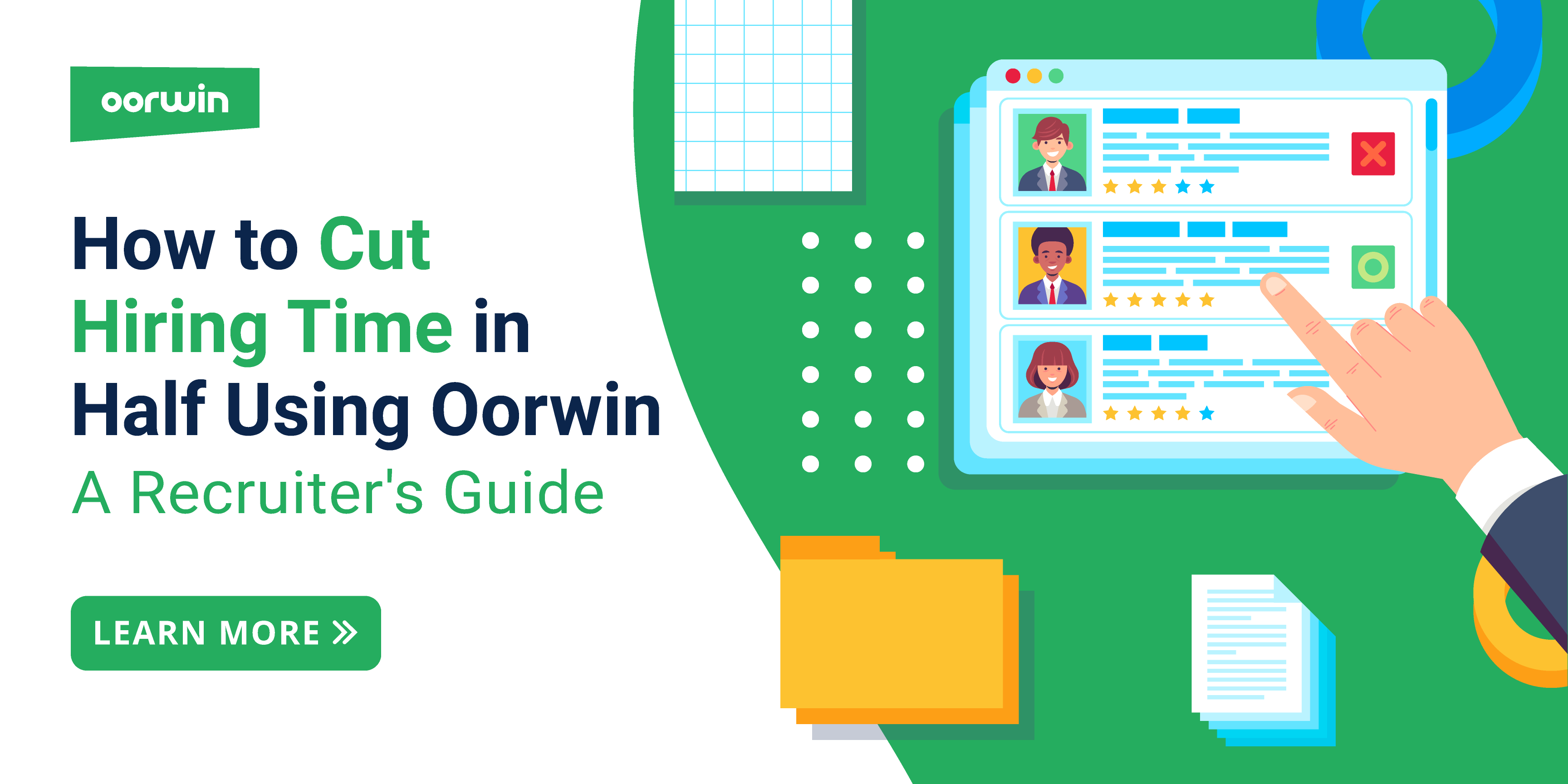Legal & Ethical ATS Compliance: Mastering Data Privacy
Oorwin
10min read / 31 Jul 2023

Related Articles
In today’s digital age, Applicant Tracking Systems (ATS) have become indispensable for modern hiring processes. These sophisticated platforms streamline recruitment efforts, making it easier for recruiters to manage candidate data and efficiently find the right talent. However, alongside their convenience, it’s crucial for recruiters and hiring teams to prioritize data privacy and compliance with legal regulations.
This article explores the role of ATS in modern hiring, the significance of data privacy in recruitment, critical legal requirements for ATS compliance, and best practices to ensure data privacy during the hiring process.
Role of ATS in Modern Hiring Processes
ATS software plays a pivotal role in revolutionizing how recruiters manage the recruitment lifecycle. From job posting to candidate selection, ATS streamlines the entire process, making it more efficient and organized. It allows recruiters to collect and store candidate information in a centralized database, making tracking applications easier, communicating with candidates, and collaborating with hiring teams.
Importance of Data Privacy in Hiring Practices
Hiring involves collecting and handling sensitive personal information, making data privacy a critical aspect of recruitment. Candidates entrust recruiters with their details, and the hiring organization is responsible for safeguarding this information. It is essential to prioritize data privacy to protect the candidate’s trust and expose the organization to legal and reputational risks.
Why Data Privacy is Crucial in Recruitment
Data privacy is crucial in recruitment for several reasons. Firstly, complying with data protection laws, such as the General Data Protection Regulation (GDPR) and the California Consumer Privacy Act (CCPA), is mandatory to avoid hefty fines and penalties. Secondly, maintaining data privacy fosters a positive candidate experience, enhancing the organization’s employer brand. Lastly, safeguarding candidate data promotes transparency and builds trust between candidates and recruiters.
Potential Risks of Neglecting Data Privacy
Neglecting data privacy in hiring practices can severely affect recruiters and organizations. Besides legal penalties, reputational damage can result in reduced candidate applications and negative word-of-mouth. Additionally, mishandling candidate data can lead to data breaches, which may cause financial losses and harm the organization’s overall business operations.
Key Legal Requirements for ATS Compliance
ATS compliance is essential to ensure the software and hiring practices align with legal regulations. Some key legal requirements include adherence to data protection laws like GDPR and CCPA and compliance with Equal Employment Opportunity Commission (EEOC) and Office of Federal Contract Compliance Programs (OFCCP) guidelines. Recruiters must know these requirements and ensure that their ATS meets compliance standards.
Steps to Ensure Data Privacy During Recruitment
To maintain data privacy during recruitment, recruiters should take proactive steps. Implementing robust access controls to limit data access, regular data audits, and data encryption are essential to safeguard candidate information. Additionally, conducting employee training on data privacy best practices will ensure that the entire hiring team is well-informed and compliant.
Best Practices for ATS Compliance and Data Privacy:
Following are some of the best practices to ensure your organization’s hiring process is Data Privacy Compliant.
Implementing ATS Compliance Measures:
- Regularly updating ATS software to the latest version to address security vulnerabilities and compliance requirements.
- Configuring access controls based on roles to restrict data access to authorized personnel only.
- Employing multi-factor authentication to enhance login security.
Strategies for Upholding Data Privacy in Hiring:
- Obtaining explicit consent from candidates before collecting their data.
- Providing candidates with a transparent privacy policy explaining how their data will be used and stored.
- Anonymizing candidate data during the evaluation process to prevent bias in decision-making.
In conclusion, as technology continues to shape the recruitment landscape, recruiters must adapt to ATS compliance and prioritize data privacy. By understanding the role of ATS in modern hiring processes, the significance of data privacy, and adhering to legal requirements, recruiters can build a strong foundation for ethical and compliant hiring practices. Embracing best practices for ATS compliance and data privacy protects candidates’ sensitive information and strengthens the organization’s reputation as an employer of choice in the competitive talent market.
Frequently Asked Questions:
Why upholding data privacy is crucial during recruitment?
Upholding data privacy is crucial during recruitment to protect candidates’ sensitive information, build trust, and ensure compliance with data protection laws. Mishandling data can lead to legal penalties, reputational damage, and deter potential applicants.
Legal requirements for ATS compliance?
ATS compliance requires adherence to data protection laws like GDPR and CCPA, as well as compliance with EEOC and OFCCP guidelines. Recruiters must ensure their ATS software meets these standards to safeguard candidate data and avoid legal repercussions.
Intersection of ATS compliance and data privacy?
ATS compliance intersects with data privacy as recruiters must implement security measures, access controls, and data encryption to safeguard candidate information. Complying with data protection laws and ATS requirements ensures ethical data handling and strengthens data privacy practices during the recruitment process.
Popular Articles..
Blog

8min read / 25-Jun-2025
Master Effective Interview Techniques with Oorwin: A Step-by-Step Recruiter’s Guide
Blog
Blog
Get the latest Oorwin releases, updates, success stories & industry news
 Back
Back
